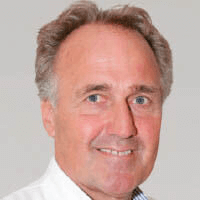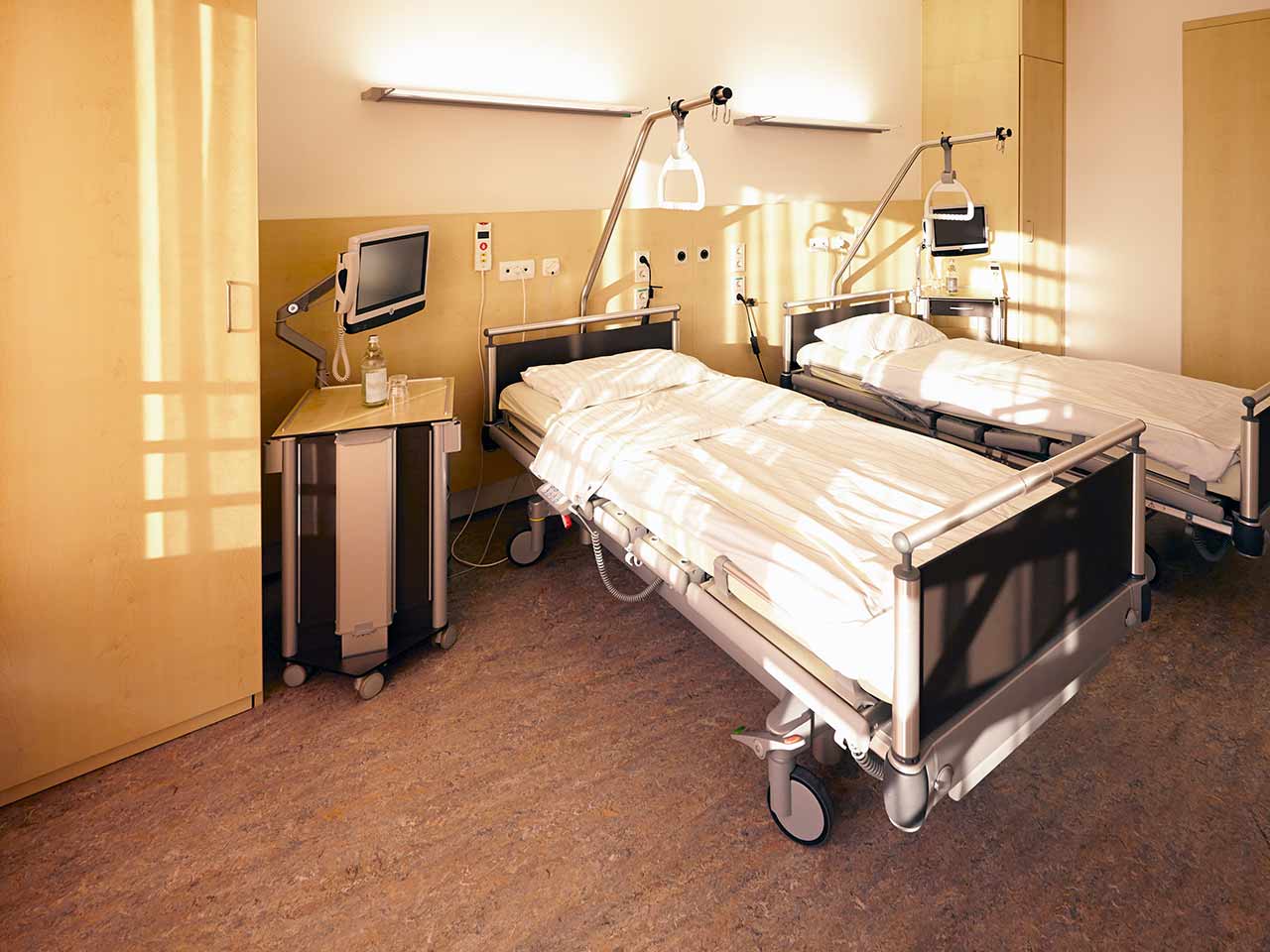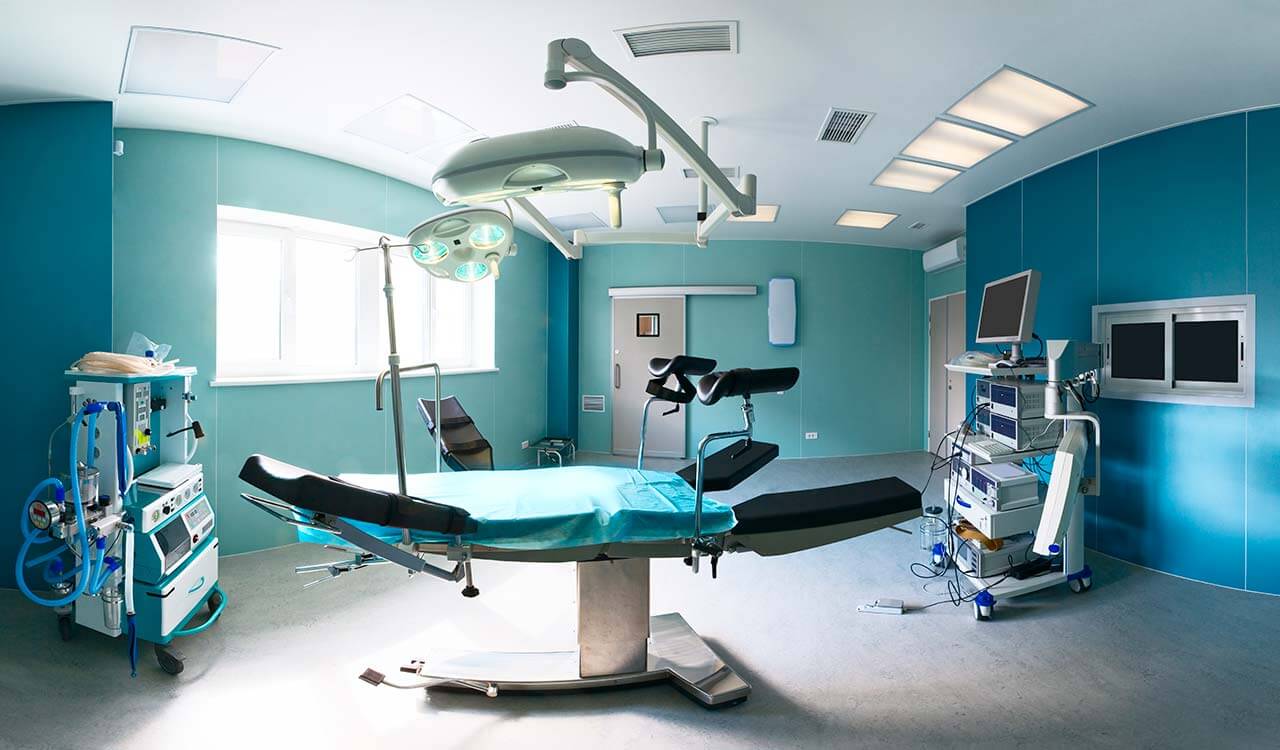
The program includes:
- Initial presentation in the clinic
- clinical history taking
- physical examination
- laboratory tests:
- complete blood count
- general urine analysis
- biochemical analysis of blood
- TSH-basal, fT3, fT4
- tumor markers
- indicators blood coagulation
- CT / MRI of the abdomen
- abdominal ultrasound
- preoperative care
- surgery treatment of testicular yolk sac tumor
- histologically and immunohistochemically examination
of the remote tissues - symptomatic treatment
- control examinations
- the cost of essential medicines and materials
- nursing services
- full hospital accommodation
- explanation of future recommendations
Required documents
- Medical records
- MRI/CT scan of the abdomen and pelvis (if available)
- Biopsy results (if available)
Service
You may also book:
 BookingHealth Price from:
BookingHealth Price from:
About the department
The Department of Pediatric and Adolescent Medicine at the Helios Hospital Hildesheim offers both diagnostics and treatment of the full range of diseases in children. The medical facility admits young patients with surgical pathologies, diseases of the nervous system and epilepsy, diseases of the heart, lungs, kidneys, gastrointestinal tract, diabetes mellitus, growth disorders, allergies and skin pathologies. A specially trained team of competent doctors is responsible for the treatment of a particular group of diseases, thanks to which high treatment success rates are achieved. The department also has the status of the Level I Perinatal Center, so newborns receive high quality care and medical services. The department's doctors have in their arsenal many modern methods of diagnostics and treatment for the fight against diseases of any severity. The medical facility has a pleasant and friendly atmosphere in which children feel as comfortable as possible. The doctors always strive to establish close contact and trusting relationships with the child. The department is headed by Prof. Dr. med. Karsten Harms.
The department's doctors are distinguished by excellent skills in pediatric surgery. They perform various surgical procedures for the treatment of congenital and acquired diseases, as well as injuries in children of all age groups. A large number of surgical interventions are performed for congenital diseases and malformations in newborns. Thanks to close cooperation with the Department of Gynecology and Obstetrics, the expectant mother can find out about the congenital pathology of her baby even at the stage of intrauterine development. In this case, the department's pediatric surgeons can plan further therapeutic measures even before the baby is born. The department's pediatric surgeons prefer sparing minimally invasive techniques, therefore, most operations in children are performed using this type of surgery. Minor interventions are often performed on an outpatient basis, without hospitalization.
A special place in the department's clinical practice is given to early detection and treatment of congenital and acquired cardiovascular diseases. Pediatric cardiologists most often deal with heart defects, heart rhythm disturbances (arrhythmias), arterial hypertension and heart murmurs. At the stage of diagnostics, the attending physician carries out a clinical examination, electrocardiography and cardiac ultrasound imaging (echocardiography). In especially complex cases, cardiac CT can also be performed. Then the most effective treatment method is determined. It is worth noting that the department's doctors cooperate closely with pediatric cardiologists from the University Hospital Goettingen and the Hanover Medical School – some of the best university medical complexes in Germany.
The department's neurologists carry out both diagnostics and treatment of nervous system diseases in children and adolescents. The most common pathologies in this area include epilepsy, physical and mental developmental disorders, syndromic diseases (for example, Down syndrome), neuromuscular diseases, chronic headaches, psychosomatic disorders and other pathologies. The specialists have vast experience in the treatment of various forms of epilepsy in children. The therapeutic options include not only drug therapy, but also the use of a ketogenic diet. As of today, it has been proven that such a diet gives excellent results in the fight against epilepsy in children. In addition, the department is the only medical facility in the region that performs vagus nerve stimulation – an innovative and effective therapeutic procedure.
The therapeutic offer of the medical facility is complemented by the treatment of gastrointestinal diseases in children and adolescents. To determine the causes of disorder in the work of the digestive system, the specialists carry out comprehensive laboratory and instrumental tests. If necessary, gastroscopy and colonoscopy can be performed in cooperation with the Department of Gastroenterology. The key focus is on the treatment of nutrient intake disorders, which can cause delayed growth and physical development, chronic inflammatory bowel disease and chronic abdominal pain of unknown origin. Depending on the particular clinical case, the optimal course of drug therapy is prescribed to a child.
Younger patients can also undergo diagnostics and treatment of diabetes mellitus. The department's doctors admit children between the ages of 0 and 18 with type 1 and 2 diabetes mellitus, as well as with such rare types of pathology as type 3 diabetes mellitus (for example, MODY), diabetes mellitus accompanied by cystic fibrosis, and diabetes mellitus in newborns. Children with diabetes mellitus receive medical care not only from diabetologists, but also from nutritionists, physiotherapists, psychologists and other doctors. The main treatment method of diabetes mellitus in children is insulin therapy. Diet therapy is also an integral part of the therapeutic process. Children with diabetes mellitus and their parents are provided with special consultations, during which doctors talk about the necessary restrictions and lifestyle modifications to prevent the progression of the pathology.
The department's range of medical services includes:
- Diagnostics and treatment of congenital and acquired surgical diseases
- Congenital malformations in newborns
- Congenital and acquired malformations in young children and adolescents
- Malformations and surgical diseases of the reproductive organs (especially in boys)
- Injuries, including bone fractures
- Diagnostics and treatment of cardiac diseases in children
- Congenital and acquired heart defects
- Heart rhythm disturbances (arrhythmias)
- Arterial hypertension
- Heart murmur
- Diagnostics and treatment of neurological diseases in children
- Epilepsy
- Congenital or acquired disorders of physical and mental development
- Syndromic disorders (for example, Down syndrome)
- Behavioral disorders
- Chronic headaches
- Neuromuscular disorders
- Psychosomatic disorders
- Diagnostics and treatment of diabetes mellitus
- Type 1 and 2 diabetes mellitus
- Rare types of diabetes mellitus, including type 3 diabetes mellitus (for example, MODY), diabetes mellitus accompanied by cystic fibrosis, and diabetes mellitus in newborns.
- Diagnostics and treatment of gastrointestinal diseases in children
- Nutrient intake disorders, which can cause delayed growth and physical development
- Chronic inflammatory bowel disease
- Chronic abdominal pain of unknown origin
- Diagnostics and treatment of kidney and lower urinary tract diseases
- Recurrent urinary tract infections
- Urinary tract diseases (ureteral stenosis, urethral stenosis, ureteral stones)
- Kidney malformations
- Cystic kidney disease
- Impaired kidney function
- Pyelonephritis
- Kidney failure
- Arterial hypertension caused by kidney disease
- Enuresis
- Diagnostics and treatment of lung diseases in children
- Respiratory tract infections (bronchitis and pneumonia)
- Bronchial asthma
- Cystic fibrosis
- Diagnostics and treatment of growth disorders in children
- Genetically determined short stature
- Hormonal disorders causing growth disorders
- Chronic diseases causing growth disorders
- Constitutional short stature
- Diagnostics and treatment of skin diseases and allergies in children
- Diagnostics and treatment of other pathologies in children and adolescents
Curriculum vitae
Higher Education and Professional Career
- 1977 - 1983 Study of Human Medicine, Georg August University of Goettingen.
- 1983 - 1985 Assistant Physician in the Department of Pediatric Cardiology at the University Hospital Goettingen.
- 1986 Doctoral thesis defense. Subject: "Changes in electrolyte balance in pregnant rabbits and their fetuses with the introduction of various doses of the sympathomimetic preparation beta 2 fenoterol in combination with low and high fluid consumption".
- 1985 - 1995 Physician in the Department of Pediatric and Adolescent Medicine at the University Hospital Goettingen.
- 1995 Venia Legendi (factors influencing the morbidity and mortality of preterm infants in the Department of Pediatric and Adolescent Medicine at the University Hospital Goettingen – study on 1,100 preterm infants).
- 1995 - 2005 Consulting Physician in the Department of Pediatric and Adolescent Medicine at the University Hospital Goettingen, and Senior Consulting Physician in the Department of Neonatology.
- 2002 Assistant Professor in the Department of Pediatric and Adolescent Medicine at the Georg August University of Goettingen.
- Since 2005 Chief Physician in the Department of Pediatric and Adolescent Medicine at the Helios Hospital Hildesheim.
Clinical Interests
- General pediatrics.
- Neonatology.
- Pediatric cardiology.
- Ultrasound diagnostics.
Photo of the doctor: (c) Helios Kliniken GmbH
About hospital
The Helios Hospital Hildesheim positions itself as an advanced provider of high-quality medical services at the European level. The medical facility is an Academic Hospital of the Hannover Medical School, thanks to which it can successfully introduce the very latest medical achievements into clinical practice. The hospital is distinguished by the excellent quality of diagnostics, highly effective treatment of pathologies of any severity and the best patient care based on understanding and humane attitude. The history of the medical complex dates back to 1838, so it carefully honors traditions, but at the same time the hospital actively uses innovative diagnostic and treatment methods. The medical team of the hospital consists of more than 1,450 people. The hospital employs highly qualified doctors who are rightfully proud of their treatment outcomes.
The medical facility has 579 beds. The team of doctors working at the hospital treats more than 28,000 inpatients and about 80,000 outpatients every year. The patients from foreign countries often undergo diagnostics and treatment in the hospital, which confirms the excellent reputation of the medical center in the international arena.
The hospital offers highly specialized departments with different medical focuses, including oncology, cardiology, gastroenterology, gynecology, dermatology, otolaryngology, general and abdominal surgery, plastic and aesthetic surgery, traumatology, etc. Many medical fields are awarded with prestigious certificates, including German Cancer Society (DKG) certification, IQM certification, and others.
Photo: (с) depositphotos
Accommodation in hospital
Patients rooms
The patients of the Helios Hospital Hildesheim live in spacious and light rooms. The furnishings of a standard patient room includes an automatically adjustable bed with an orthopedic mattress, a bedside table, and a wardrobe for storing things. All patient rooms have telephone, radio and TV, as well as free Wi-Fi. For maximum convenience of patients, each room has an ensuite bathroom with shower and toilet.
If desired, the patient can stay in an enhanced-comfort room. Such rooms are distinguished by a more sophisticated design, and are additionally equipped with a safe, a minifridge and upholstered furniture.
Meals and Menus
The patients of the hospital are offered tasty and varied meals. Diet and vegetarian menus are also available. If the patient follows a special diet recommended by the attending physician, he will be provided with food cooked from approved products.
Breakfast is served buffet style: eggs, various types of cheese, sausage, buns, jam, vegetables. There are three set menus to choose from for lunch. Dinner is also served buffet style.
In addition, the hospital has a cozy cafe called Leckeria where one can have a delicious snack. The range of dishes includes light salads, hearty set meals, snacks, sandwiches, cakes, as well as tea, coffee and soft drinks. The terrace is open in the summertime.
Further details
Standard rooms include:
Television
All patient rooms have a TV set. The TV can be used with headphones – the patients can use their own headphones or ask for the headphones from the staff.
Religion
The patient can talk with a Christian priest at any time. Divine services are held every Sunday at 10 am (on the ground floor).
Other religious services are available upon request.
Accompanying person
During the inpatient program, the accompanying person can stay with the patient in a patient room or at a hotel of his choice. Our managers will help you choose the most suitable option.
Hotel
During the outpatient program, the patient can stay at a hotel of his choice. Our managers will help you choose the most suitable option.




